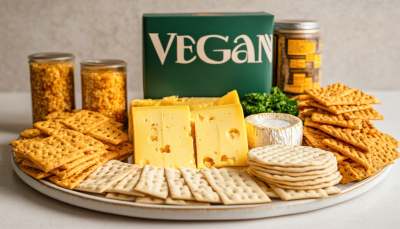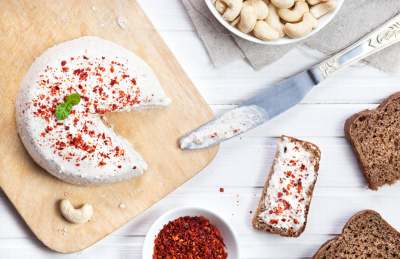A growing number of people have switched to plant milks, for some or all of their milk intake, but fewer people seem to have moved over to vegan cheese.
But vegan cheese is an important market, not least for vegans and lactose intolerant people, and several multinational dairy companies have acquired vegan cheese brands to tap into the vegan market.
In this guide, we review how ethical vegan cheese is, what it's made from, and if it has a lower environmental impact than dairy cheese. We also look at price and packaging of vegan cheese.
Which vegan cheese brands are in this guide?
We have included a range of the vegan cheeses available in the UK, from big multinational names like Cathedral City and other popular dairy brands like Applewood and Babybel who have made vegan versions of their dairy cheeses, to small artisanal independent cheeses and vegan manufacturers.
We have not included supermarket own-brands in the score table, but you can check out the latest supermarket shopping guide to see how they rate.
It will probably come as no surprise to find out that some brands scored nearly full marks, whereas others failed to impress in any of our rating categories.
Despite that, if you are looking for an ethical vegan cheese, there are plenty of options. Even one from a dairy-owning company which scores poorly will have fewer negative environmental and ethical impacts, as we discuss later.





